Drug Possession
Possession of illegal drugs is a crime in the state of Tennessee. But, a drug possession charge normally results in far less jail time (or in some cases perhaps just probation) than a typical drug distribution charge. Typically, the smaller amount of drugs a defendant the more likely a possession charge may be the end result rather than a more serious drug distribution charge.
A standard drug possession charge in Tennessee is the crime of simple possession or what is formally called “casual exchange.” Tenn. Code Ann. § 39-17-418(a) provides: “It is an offense for a person to knowingly possess or casually exchange a controlled substance, unless the substance was obtained directly from, or pursuant to, a valid prescription or order of a practitioner while acting in the course of professional practice.”
This means that it is a crime to knowingly possess or casually exchange a controlled substance unless it was obtained by a valid prescription from a physician. Another section of the law provides that “it is an offense for a person to distribute a small amount of marijuana not in excess of one-half (½) ounce (14.175 grams).”
The casual exchange of drugs is something that occurs say at a party where one person passes a joint or passes of a line of cocaine to another person. It generally does not involve monetary transactions, particularly over a certain amount. The Tennessee Court of Criminal Appeals explained: “A ‘casual exchange’ contemplates a spontaneous passing of a small amount of drugs, for instance, at a party. Money may or may not be involved. It does not contemplate the type of drug dealing made out in this case.” State v. Copeland, 983 S.W.2d 703 (Tenn. Crim. App. 1998).
Get your 100% FREE initial consultation!
If a defendant is in possession of a smaller amount of drugs and there is no intent to sell the drugs for profit, then the defendant should be charged with simple possession rather than possession with an intent to distribute illegal drugs. Oftentimes, simple possession or causal exchange is a lesser-included offense of a more serious charge of drug possession with an intent to distribute.
Another question that arises in drug cases concerns whether the defendant “possessed” the drugs. In Tennessee, there is actual possession and a more nebulous concept known as “constructive possession.” Possession of contraband, such as illegal drugs, can be either actual or constructive. Actual possession means what it says – that the defendant had illegal drugs on his person or hidden in his pockets.
Constructive possession is a more difficult concept. It generally means an ability to reduce an object to actual possession, or having the ability to exercise dominion or control over the drugs. Let’s say that a defendant is at a house party and suddenly the police conduct a raid and search the premises. The defendant at the time is seated on a couch. At the other end of the couch, the police find two baggies of cocaine. Can the police charge the defendant with drug possession because he was near the illegal drugs? It would be hard to establish that the defendant had actual possession of the drugs, because the defendant was not holding the drugs. It may even be difficult to establish constructive possession, because the defendant was not in arm’s reach of the drugs and the defendant can claim he was simply an unknowing visitor.
Tennessee courts have held that mere presence in an area where drugs are found is standing alone not enough to establish constructive possession. Likewise, “mere association with a person who does in fact control the drugs or property where the drugs are discovered is insufficient to support a finding that the person possessed the drugs.” State v. Cooper, 736 S.W.2d 125 (Tenn. Crim. App. 1987).
The Tennessee Supreme Court has explained: “Constructive possession depends on the totality of the circumstances in each case. It may be proven by circumstantial evidence.” State v. Robinson, 400 S.W.3d 529 (Tenn. 2013). The Robinson case is instructive. It involved significant drug charges brought against a defendant who possessed nearly 300 grams of cocaine in a co-defendant’s truck and more grams of cocaine in the co-defendant’s residence.
The Tennessee Supreme Court determined that the government could establish constructive possession on the part of the defendant based on the drugs in the co-defendant’s truck. A police officer testified that the cocaine in the truck was found within an arm reach of the defendant who was sitting in the co-defendant’s passenger seat of the vehicle. Another officer testified that he saw the Defendant throw a small portion of the drug into the backseat of the vehicle. This was enough evidence to find constructive evidence of the drugs in the truck.
However, the Tennessee Supreme Court reversed the conviction that related to the Defendant’s alleged connection to his co-defendant’s home. The state’s evidence, the Court ruled, showed that the Defendant likely had some knowledge of the illegal contraband in his co-defendant’s residence. However, the evidence was not sufficient to establish that the defendant exercised control or dominion over the drugs in his co-defendant’s home. Thus, there was not constructive possession.
If you are facing drug distribution or drug possession charges, you need to consult an experienced criminal defense attorney. That attorney may be able to convince a prosecutor that the prosecutor cannot establish an intent to distribute drugs. In other words, the attorney may be able to get the case pled down to a simple possession charge. In other instances, it may be unclear whether you even had possession of the drugs.
Attorney Philip N. Clark of PNC Law is such an experienced criminal defense attorney. Not only is he a skilled negotiator, he served more than twenty (20) years in law enforcement. He has been involved in many street-level encounters involving drugs. He knows the right questions to ask to determine if there truly was actual or constructive possession of drugs. Any drug charge is a serious offense. If you face such charges, contact Philip Clark at PNC Law.
Connect with Philip N. Clark right away!
(615) 785-2000

